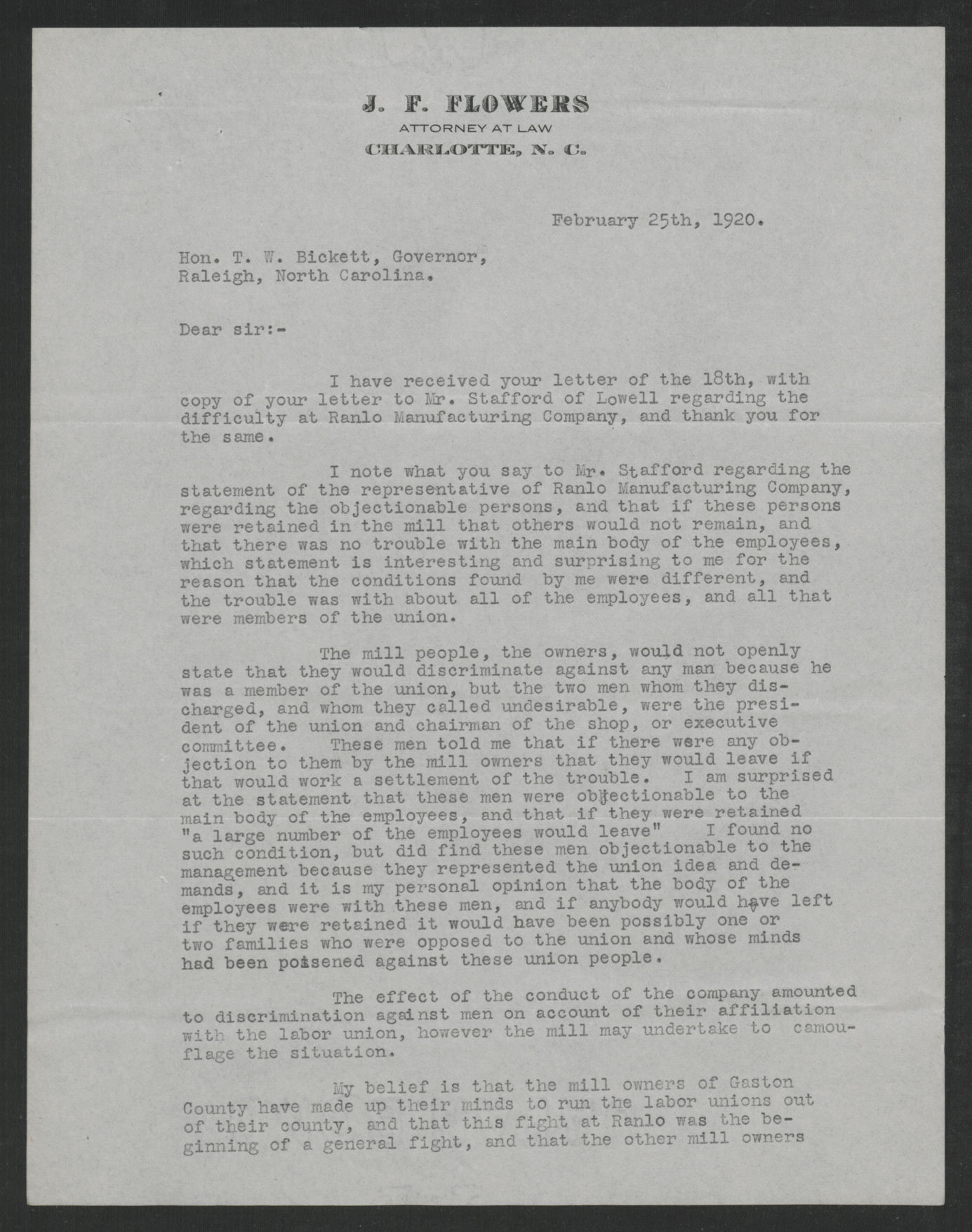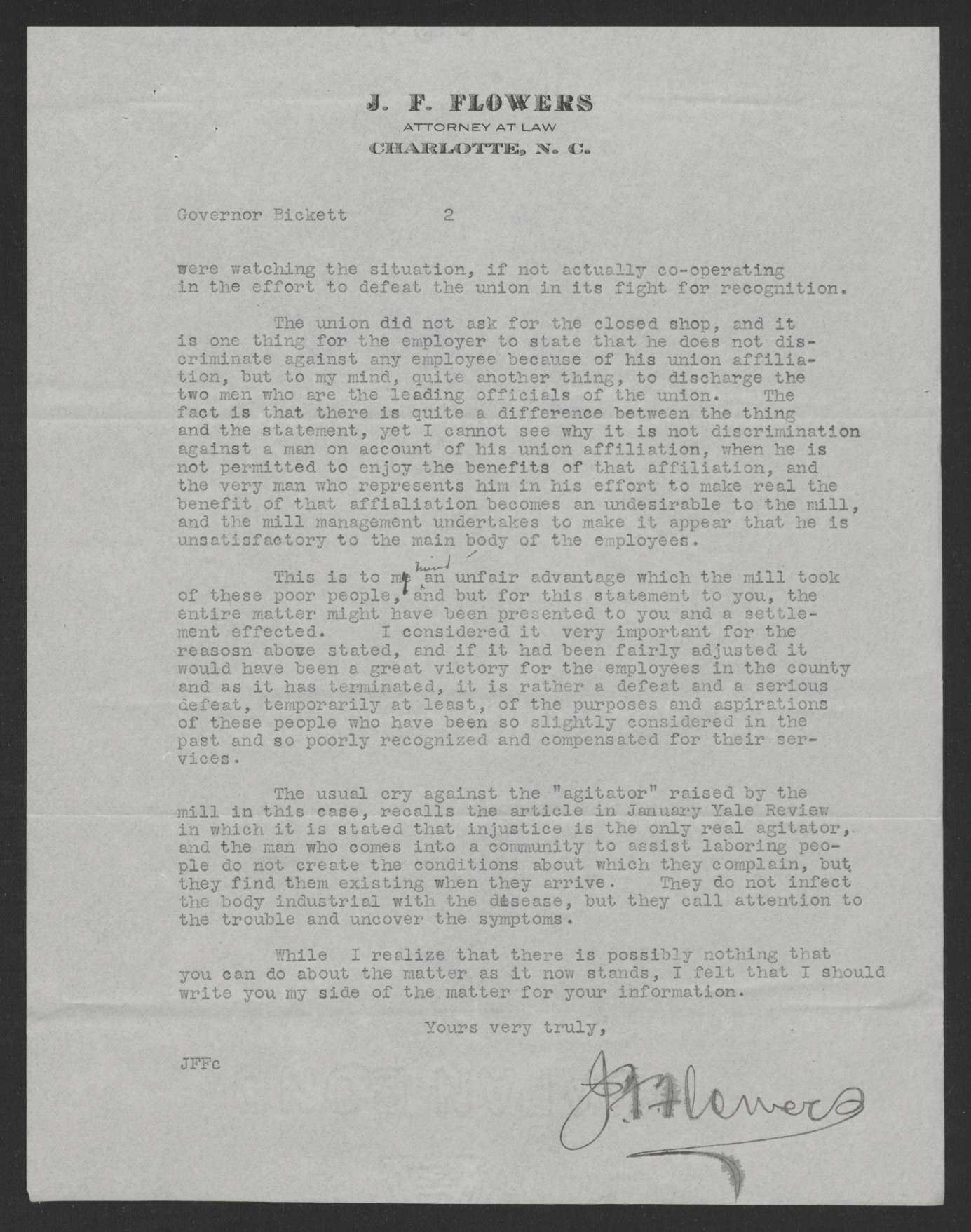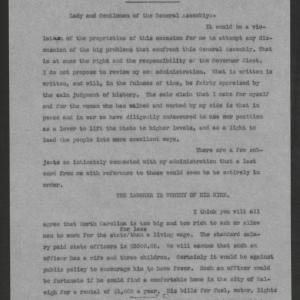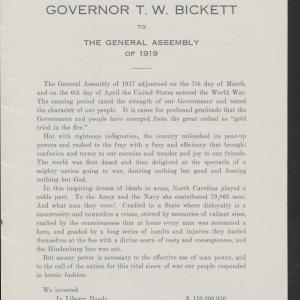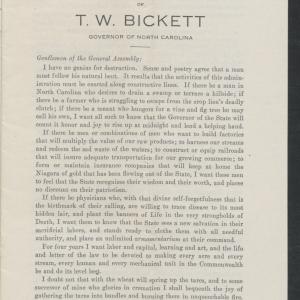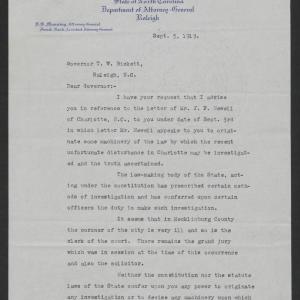J. F. FLOWERS
ATTORNEY AT LAW
CHARLOTTE, N.C.
February 25th, 1920.
Hon. T. W. Bickett, Governor,
Raleigh, North Carolina.
Dear sir:-
I have received your letter of the 18th, with copy of your letter to Mr. Stafford1 of Lowell regarding the difficulty at Ranlo Manufacturing Company, and thank you for the same.
I note what you say to Mr. Stafford regarding the statement of the representative of Ranlo Manufacturing Company, regarding the objectionable persons, and that if these persons were retained in the mill that others would not remain, and that there was no trouble with the main body of the employees, which statement is interesting and surprising to me for the reason that the conditions found by me were different, and the trouble was with about all of the employees, and all that were members of the union.
The mill people, the owners, would not openly state that they would discriminate against any man because he was a member of the union, but the two men whom they discharged, and whom they called undesirable, were the president of the union and chairman of the shop, or executive committee. These men told me that if there were any objection to them by the mill owners that they would leave if that would work a settlement of the trouble. I am surprised at the statement that these men were objectionable to the main body of the employees, and that if they were retained "a large number of the employees would leave" I found no such condition, but did find these men objectionable to the management because they represented the union idea and demands, and it is my personal opinion that the body of the employees were with these men, and if anybody would have left if they were retained it would have been possibly one or two families who were opposed to the union and whose minds had been poisened against these union people.
The effect of the conduct of the company amounted to discrimination against men on account of their affiliation with the labor union, however the mill may undertake to camouflage the situation.
My belief is that the mill owners of Gaston County have made up their minds to run the labor unions out of their county, and that this fight at Ranlo was the beginning of a general fight, and that the mill owners were watching the situation, if not actually co-operating in the effort to defeat the union in its fight for recognition. The union did not ask for the closed shop, and it is one thing for the employer to state that he does not discriminate against any employee because of his union affiliation, but to my mind, quite another thing, to discharge the two men who are the leading officials of the union. The fact is that there is quite a difference between the thing and the statement, yet I cannot see why it is not discrimination against a man on account of his union affiliation, when he is not permitted to enjoy the benefits of that affiliation, and the very man who represents him in his effort to make real the benefit of that affialiation becomes an undesirable to the mill, and the mill management undertakes to make it appear that he is unsatisfactory to the main body of the employees.
This is to my mind an unfair advantage which the mill took of these poor people, and but for this statement to you, the entire matter might have been presented to you and a settlement effected. I considered it very important for the reason above stated, and if it had been fairly adjusted it would have been a great victory for the employees in the county and as it has terminated, it is rather a defeat and a serious defeat, temporarily at least, of the purposes and aspirations of these people who have been so slightly considered in the past and so poorly recognized and compensated for their services.
The usual cry against the "agitator" raised by the mill in this case, recalls the article in January Yale Review in which it is stated that injustice is the only real agitator, and the man who comes into a community to assist laboring people do not create the conditions about which they complain, but they find them existing when they arrive. They do not infect the body industrial with the disease, but they call attention to the trouble and uncover the symptoms.
While I realize that there is possibly nothing that you can do about the matter as it now stands, I felt that I should write you my side of the matter for your information.
Yours very truly,
JFFc
1. This is likely Walter Eugene Stafford, of Gaston County, North Carolina.

